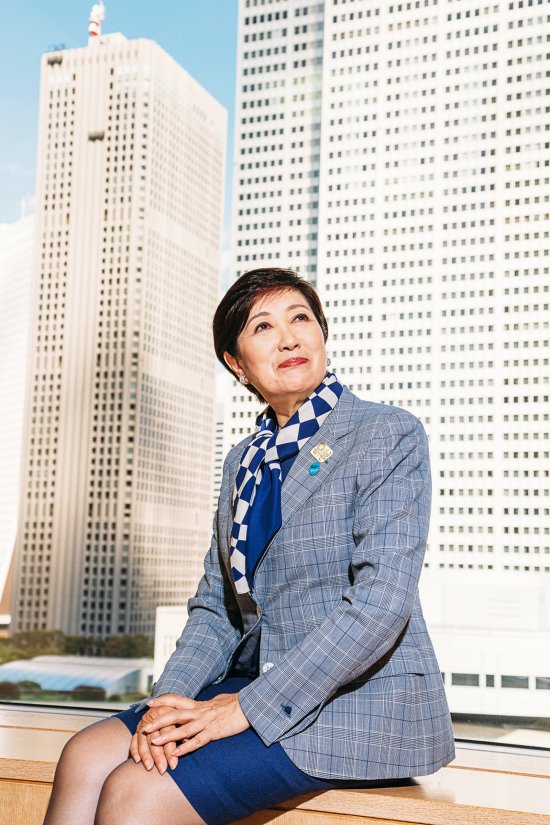
Perhaps more than any other city, Tokyo bet big on 2020. Japan’s capital had ear-marked $12.6 billion for hosting an Olympic Games that would rejuvenate run-down neighborhoods and turbocharge the country’s tourism industry. Then the COVID-19 pandemic hit, postponing the Games and throwing the city’s plans into uncertainty. Despite spiraling costs, Tokyo Governor Yuriko Koike says her city is ready for next year’s rescheduled Games and sees opportunities to leverage the crisis to improve governance. This interview has been translated from Japanese and was edited for length and clarity.
[time-brightcove not-tgx=”true”]
Given the huge sums spent on the postponed 2020 Tokyo Olympics, how important is making the rescheduled Games a success?
It is extremely important. You can feel the power of sports is even stronger because of the current situation—and Tokyo 2021 will be a symbolic Games to prove that people, all together from across the world, have defeated the virus. Since the Olympics were postponed, we have been discussing with the International Olympic Committee how to down-scale the competition and reduce costs. Our goal is to show a new model for the Olympic and Paralympic Games.
Will there be any substantive changes in how the 2021 Games are run in order to safeguard public health?
We have to make thorough preparations to account for athletes, spectators and all those involved. We need to discuss border controls, how we are going to welcome people from across the world and run the athletes’ village. We need to make our countermeasures against COVID-19 more robust. And our model will be passed on to future Olympic host cities, such as Beijing, Paris and L.A.
How has Tokyo handled the pandemic, and how is it forcing you to rethink how the city is run?
Tokyo has a population of 14 million, and we have had about 400 deaths from COVID-19 so far. We have been encouraging our people to regularly wash their hands, wear masks and abide by social distancing. Currently, people are facing tough situations both at home and at work. This year’s GDP drop was the biggest since World War II. And we are aware that people will begin to lose their jobs or their businesses. We must now establish our “new” daily lifestyle and find the balance between keeping our people safe and maintaining the economy.
How are you reassessing infrastructure needs following the pandemic, such as public transport and remote working?
Last year, only 25% of people in Tokyo used remote working, but it went up to 60% in June this year. Japanese people were known to work from early morning to late at night, but such habits had to change after COVID-19. We would like to increase the remote-work population further. This is a good opportunity to redesign Tokyo from a city filled with automobiles to a city arranged around people.
How important is the relationship between the Tokyo government and national government, especially at a time of crisis, and how can it be strengthened?
We need to keep working closely with the national government in various fields including COVID-19 issues [and] the Tokyo 2020 Olympics—and [new] Prime Minister [Yoshihide] Suga and I agreed on that. At the same time, the local government has autonomy to a certain extent. It is our responsibility to implement measures for the well-being of local people. And we would like to ask the national government for its continuous support for autonomous local governments so that we can fulfill our responsibilities.
Do you think COVID-19 can help foster positive change?
Although people’s attention is focused on COVID-19, climate change has caused natural disasters across the world. It may be small, what each individual can do; maybe whether a person wears a mask or doesn’t wear a mask is a small issue, but such small things can make a difference if shared by 7 billion people. More people began to ride bikes because of the pandemic, and that helps reduce CO2 emissions. It is possible to deal with these two issues at the same time by fighting the pandemic while sustaining the economy.